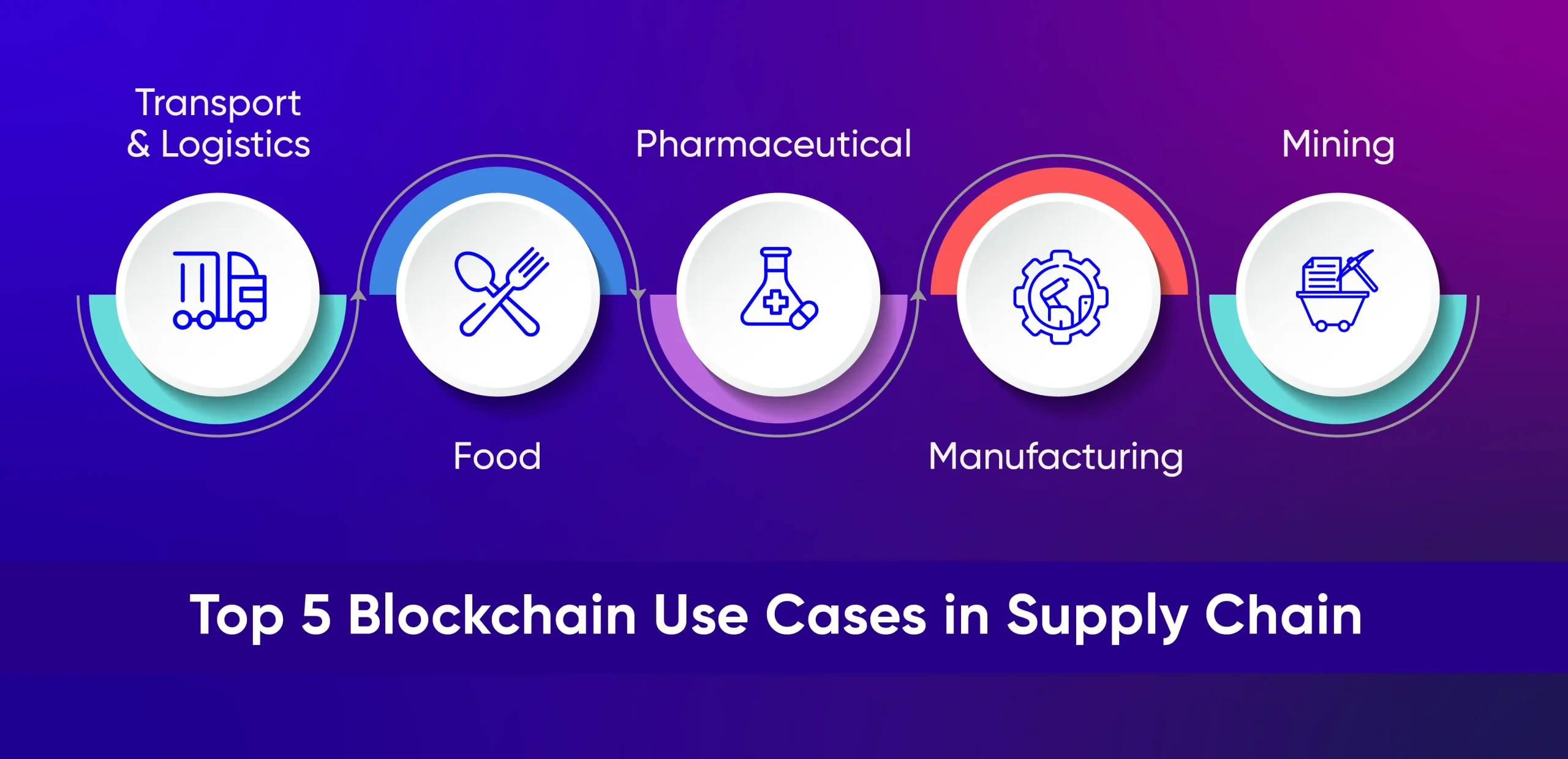
Introduction
Web3 & Blockchain Consultancy :
Top 5 Use Cases of Blockchain in Supply Chain Management
A hundred years ago, supply chains were straightforward and local. However, with today’s globalized manufacturing, supply chains have become far more complex. In response, many businesses are rapidly digitizing their supply chains by adopting new technologies, including Blockchain.Key Takeaways
- Real-World Use cases: Companies like Walmart, Pfizer, Ford, and BHP are leveraging Blockchain technology to improve efficiency, transparency, and security in their supply chains.
- Future Potential: Blockchain can further transform supply chains, making them more secure, transparent, and efficient, meeting the growing demand for reliability and sustainability.
- Transparency & Traceability: Blockchain creates an immutable record of every transaction, providing full visibility from production to delivery, reducing fraud, and ensuring product authenticity.
Top 5 Blockchain Use Cases in Supply Chain
In this section, we’ll explore the top five use cases of Blockchain in supply chains. Each use case demonstrates how businesses are leveraging this technology to address common challenges and optimize their operations, ultimately leading to more robust and resilient supply chains.